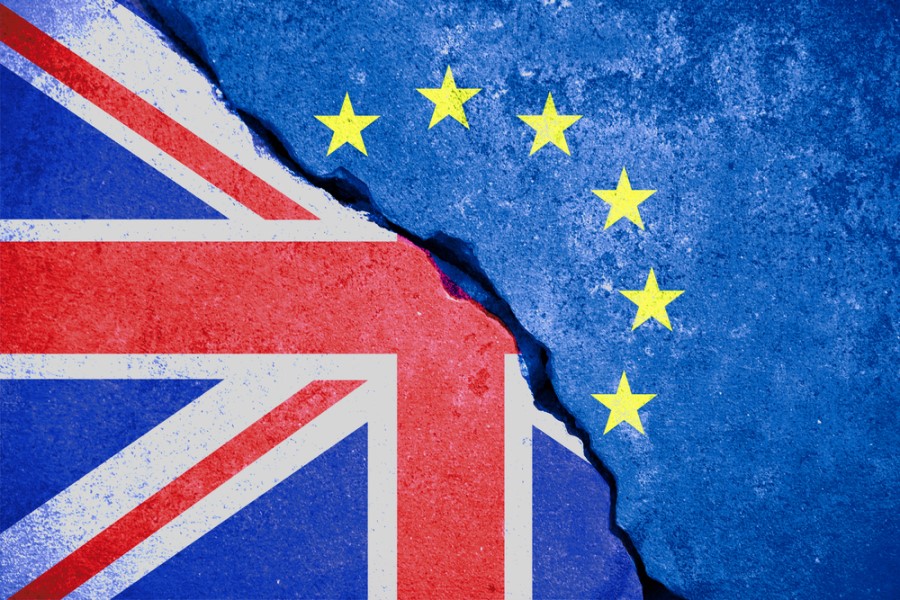Brexit: key considerations for reward professionals as deal hangs in the balance

In short, a no-deal will have an impact. While it’s hard to make any firm predictions, there are several potential scenarios that could play out. It should also be stressed that any changes will vary by industry.
The impact on pay
In the private sector, people’s pay is strongly linked to their employer’s business performance (in the public sector there are multiple factors at play, including the overall health of the economy). So, if a no-deal Brexit is as bad as some commentators predict – in terms of higher administration costs or disruptions to ‘just-in-time’ processes – those businesses that rely directly on the import and export of goods (or indirectly through their supply chain) may well come under short-term pressure.
In response, these employers might freeze or cut pay, though they may also decide to increase people’s non-financial benefits instead, as a compromise of sorts. Offering a wider range of flexible working arrangements, which has come to dominate the headlines in the last several months, is an option to maintain the value of the package and keep employees onboard.
Of course, there could be even more serious consequences, like redundancies, depending on the length and depth of the economic fallout. It will be important to explain to workers what’s being done, why and how, and to reassure them that policies are in place to ensure that these and other reward and people management decisions are made fairly. Also, many employees will have voted for Brexit, so will accept that they might have to endure short-term pain for longer-term gain.
Much has also been written about the costs of goods rising whether or not there’s a trade deal and, as a consequence, employers could come under pressure from their staff to increase wages to match the new cost of living. Whether employers will be able to do this is another question though. However, even if employers are unable to increase pay to match inflation, they may be able to help stretch their employees’ pay packets by enhancing their workplace financial wellbeing package. This could be achieved through negotiating cheaper deals for staff on a range of goods and services, or through financial education programmes that make employees savvier consumers.
Changes to the labour market
What is more certain – and is already happening – is that Brexit is changing the makeup of our labour market. Covid-19 has also had an impact, given that many EU workers operate in sectors that have been badly affected by the lockdowns.
The latest official statistics show that the number of new EU-born workers in the UK fell by 495,000 between January–March and July–September 2020. This represents a fall of more than 20% and erases more than five years of employment growth among this group.
This could spell problems for recruitment in the medium-term as our economy grows, due to a bounce back from the pandemic and the potential boost from the UK quickly signing more bespoke trade deals. Employers need to fill the gap by investing more in their talent pipeline (by reskilling and upskilling British workers), and make more of an effort to recruit from groups that traditionally have found it hard to break into the labour market (such as those with disabilities or ex-servicemen and women). They may also need to spend more on financial and non-financial rewards to attract the best and beat off the competition.
Regardless of whether we get a deal and, if we do, the type of deal we get, employers will have to pay more when recruiting non-UK workers via the skilled route, and have to pick up other associated costs; for example, visa fees will exceed £10,000 for a family of four. While large employers may find it easier to absorb these costs, smaller business could well struggle and may have to make cuts elsewhere.
It should also be noted that, like with Covid-19, some sectors will be affected more than others. While some may not need to make any cuts or may even be able to increase the reward budget, there are others who will. If our economy takes more than a temporary hit, public sector workers could also find they are waiting even longer for a pay rise.
Long-term optimism
There is much that is still unknown about the economic impact of Brexit. However, while it’s important to prepare for the worst, employers should be ready for when the economy improves. Short-term cuts to reward may be essential for some organisations, but to ensure that employees remain engaged, such reductions should be kept to a minimum, done fairly (and legally) and with the input of workers. If not, the danger is that when the good times return, employees disillusioned with how they have been treated will move to new employers.
The author is Charles Cotton, senior performance and reward adviser at the CIPD, the professional body for HR and people development.






